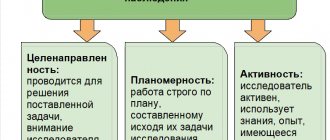Are you ready to stop thinking about your problem and finally move on to real actions that will help you get rid of your problems once and for all? Then perhaps you will be interested in this article .
Types of anxiety should not be confused with types of anxiety. The latter is a situational reaction to a stimulus, disappearing as soon as the impact stops. Anxiety is a feature of the psyche that causes a person to experience anxiety even when there is no reason for the anxiety.
Why is it needed?
It is not for nothing that nature came up with such a personality quality as anxiety. Still, there is an objective danger and threat to life in the world. How to save a person? Only with the help of a built-in danger avoidance mechanism! This mechanism is anxiety.
By the way, it is worth distinguishing between anxiety and fear.
Fear is believed to arise as a reaction to a physical threat. While anxiety should prepare a person to overcome an emotional threat, for psychological impact. Therefore, a moderate level of anxiety is beneficial.
What happens?
I have already said that anxiety can be moderate (that which is only beneficial) and increased. It also happens that it is reduced.
- Moderate anxiety is a kind of internal “bell” that gives a signal as soon as you need to draw attention to something potentially dangerous. This is the norm. The level that does not cause inconvenience, rather helps in life.
- Increased anxiety is the very case when it goes “off scale.” At this level, the body cannot cope with the load and anxiety begins to be expressed in the outside world. External symptoms of increased anxiety are increased sweating and heartbeat, weakness, numbness of the limbs, tics, flatulence, a feeling of a “lump” in the throat, spasms, insomnia. It’s difficult to enjoy life in such a situation; you expect a catch around every corner.
- Reduced anxiety is the other extreme, bordering on indifference and indifference. This level is harmful because it can lead to negligence and ignorance of risk.
In addition to moderate and increased, there are personal and situational anxiety.
- That is, personal anxiety is a feature of the soul that does not depend on the current level of stress. It's always there. It is with this level of anxiety that this or that person lives. Personal anxiety can be high, low, or moderate.
- Situational anxiety occurs when stress levels increase in a relatively short period of time and is associated with new experiences. Fluctuations in situational anxiety are considered normal. Situational anxiety will decrease when stress levels decrease. If stress persists for a long time, then situational anxiety can change the overall level of anxiety.
Characteristics of anxiety as a psychological state
The understanding of anxiety as a mental phenomenon stems from the fact that the term “anxiety” is used by psychologists in different meanings. It could be:
- a temporary mental state that arose under the influence of stress factors;
— frustration of social needs;
- the primary indicator of ill-being, when the body does not have the opportunity to naturally fulfill its needs;
- a personality trait that is given through a description of external and internal characteristics using related concepts;
— reaction to the presented threat [13].
Most often, the term “anxiety” is used to describe an unpleasant mental state, which is characterized by subjective feelings of tension, anxiety, gloomy forebodings, and from the physiological side is accompanied by activation of the autonomic nervous system. Being a natural state, anxiety plays a positive role not only as an indicator of a disorder, but also as a mobilizer of mental reserves.
However, anxiety is most often viewed as a negative state associated with the experience of stress. The state of anxiety can vary in intensity and change over time as a function of the level of stress to which an individual is exposed, but the experience of anxiety is common to any person in adequate situations. The reasons that cause anxiety and influence changes in its level are diverse and can lie in all spheres of human life. Conventionally, they are divided into subjective and objective reasons.
Subjective reasons include informational reasons associated with incorrect ideas about the outcome of the upcoming event, leading to an overestimation of the subjective significance of the outcome of the upcoming event. Among the objective reasons that cause anxiety are extreme conditions that place increased demands on the human psyche and are associated with the uncertainty of the outcome of the situation [18].
The term "personal anxiety" is used to refer to relatively stable individual differences in an individual's tendency to experience anxiety. The level of personal anxiety is determined based on how often and how intensely an individual experiences anxiety [18]. The functional aspect of research on personal anxiety involves considering it as a systemic property that manifests itself at all levels of human activity.
An optimal level of anxiety is necessary for effective adaptation to reality - adaptive anxiety. An excessively high level of anxiety, as well as an excessively low one, is called a maladaptive reaction, which manifests itself in a general disorganization of behavior and activity.
As anxiety and uneasiness increase, the phenomena that express them undergo a number of natural changes that make up the phenomena of the anxiety series. This concept was introduced in 1967 by psychologist F.B. Berezin, who defined the phenomenon of anxiety as emotional states that naturally replace each other as the state of anxiety increases and increases. By 1988, Berezin formulated the main gradations of anxiety phenomena and gave an exhaustive classification of them, in which the psychologist identified 6 levels:
1. The first level of anxiety phenomena is a feeling of internal tension, which is characterized by the lowest intensity of anxiety and the greatest adaptive significance. The feeling of internal tension is expressed in experiences of tension, wariness and discomfort. This feeling does not carry a sign of a threat, but serves as a signal of the approach of more pronounced alarming phenomena.
2. at the second level, hypersthetic reactions replace or join the feeling of internal tension. Previously neutral stimuli acquire significance, and when intensified, they acquire a negative emotional connotation. This is the basis for the appearance of an undifferentiated reaction in a person, defined as irritability.
3. the third level - anxiety itself - manifests itself in the experience of an uncertain threat, a feeling of unclear danger.
4. The fourth level - fear - arises with an increase in anxiety and manifests itself in the objectification, concretization of an uncertain danger. Moreover, the objects with which fear is associated do not necessarily reflect the real cause of anxiety, the actual threat.
5. The fifth level - a feeling of the inevitability of an impending catastrophe - arises as a result of the continuing increase in anxiety and is expressed in the experience of the impossibility of avoiding danger, an imminent catastrophe, and horror. Moreover, this experience is not associated with the content of fear, but only with an increase in anxiety. Undefined but very strong anxiety can also cause similar experiences.
6. The sixth level of anxiety phenomena – anxious-fearful arousal – is expressed in “the need for motor relief, a panicked search for help. The disorganization of behavior and activity caused by anxiety reaches its maximum” [19].
Thus, anxiety is the ability of a person to enter a state of increased anxiety, to experience fear and anxiety in a specific social situation; an individual psychological feature that manifests itself in a person’s tendency to experience frequent and intense anxiety, as well as a low threshold for its perception. It is considered as a personal formation and as a property of temperament, caused by the weakness of nervous processes.
Mental states are, as a rule, reactive states - a system of reactions to a certain behavioral situation. However, all mental states are distinguished by a clearly expressed individual feature and are a current modification of the psyche of a given individual. Anxiety can be situational and endogenous, paroxysmal or continuous, most often short-term. When it becomes so severe that it begins to interfere with life, a diagnosis of anxiety disorder is made [23].
Based on clinical practice, clinical trial results, and epidemiological data, a distinction has been made between anxiety as a reaction or temporary state and persistent anxiety as a personality trait or manifestation of a mental disorder. This made it possible to develop diagnostic criteria for anxiety disorders, to study their prevalence, clinical picture and social significance.
Let's take a closer look at the main forms of anxiety:
1. situational anxiety
Occurs in response to stressful events, such as a medical examination or surgery. Such anxiety is usually short-lived and ends with the onset of the expected event or its completion. Situational anxiety can reflect fear of the unknown. It often occurs in people with low self-esteem and is caused by an unreasonable fear of appearing funny, being rejected, or failing. Situational anxiety to some degree is commonly observed in all anxiety disorders, including anxiety neurosis, panic disorder, simple phobias, social phobia, post-traumatic stress disorder and obsessive-compulsive disorder.
2. phobic anxiety
is a form of situational anxiety. Obsessive fears, or phobias, are characterized by an avoidance reaction. The severity of obsessive fears and their impact on life activities vary widely.
3. anticipation anxiety
often combined with phobic anxiety, situational anxiety and panic attacks. It manifests itself in the fact that the patient is afraid of getting into a frightening situation, and sometimes by the fear of anxiety or panic attacks. At the same time, it is often almost impossible to distinguish between anticipation anxiety and, for example, situational anxiety. The severity of anticipatory anxiety varies from mild anxiety to severe tension.
4. spontaneous anxiety
(“free fear” according to Freud) it is not possible to establish a connection between anxiety and any specific situation or stimulus. It can manifest itself as causeless anxiety, vague forebodings, and it is this anxiety that is most characteristic of anxiety neurosis. They are suppressed by psychological defense mechanisms, but the anxiety they cause remains. The duration of spontaneous anxiety can vary - from a short attack to constant anxiety (for several weeks or even months).
5. post-stress anxiety
develops after extreme, usually unexpected situations - fires, floods, participation in hostilities, rape, kidnapping of a child. Restlessness, irritability, headache, increased quadrigeminal reflex (reaction to a sudden stimulus), sleep disorders and nightmares, including pictures of the experienced situation, feelings of loneliness and mistrust, feelings of inferiority, avoidance of communication and any activities that may remind of what happened are also usually observed. events. If this entire complex develops after a certain latent period after an extreme situation and leads to significant impairments in life, then a diagnosis of post-traumatic stress disorder is made. Post-stress anxiety is less likely to develop if a person actively acts during an extreme situation.
6. anxious depression
is a group of disorders in which anxiety, tension or motor agitation are combined with depression. More than 60% of patients with anxiety have symptoms of depression. In other cases, with chronic depression, anxiety periodically develops, difficulty falling asleep appears, while at the same time, early awakenings typical for depression persist [9].
Thus, the feeling of threat is a central element of anxiety and determines its biological significance as a signal of trouble and danger. Anxiety can be considered as a mental state, expressed in experiences of fear and disturbance of peace caused by possible and probable troubles or delay of what is pleasant and desirable.
The role of this property in the social sphere is revealed, where anxiety affects efficiency in communication, socio-psychological indicators of the effectiveness of managers, relationships with comrades, giving rise to conflicts [18].
In the psychological sphere, anxiety manifests itself in a change in the level of a person’s aspirations, in a decrease in self-esteem, determination, and self-confidence. Personal anxiety affects motivation. There is an inverse relationship between anxiety and such personality characteristics as: social activity, desire for leadership, emotional stability, degree of neuroticism and introversion [2]. Anxiety also manifests itself in the psychophysiological sphere; there is a connection between anxiety and the characteristics of the nervous system, with the energy of the body, and the development of psycho-vegetative diseases.
The main negative aspects of a high level of personal anxiety are identified:
- a person with a high level of anxiety perceives the world around them as containing threat and danger to a much greater extent than a person with a low level of anxiety
— a high level of anxiety creates a threat to the mental health of the individual and contributes to the development of pre-neurotic conditions.
- negatively affects performance results. There is a correlation between anxiety and personality traits on which academic performance depends.
— anxiety affects professional orientation [7].
The causes of anxiety at the social level are impaired communication. At the psychological level, the subject’s inadequate perception of himself; at the psychophysiological level, the causes of anxiety are associated with the peculiarities of the structure and functioning of the central nervous system [6].
Personal anxiety does not necessarily manifest itself directly in behavior; it is an expression of subjective ill-being of the individual, creating a specific background for her life activity that depresses the psyche.
What kind of anxiety should there be?
How do you know if it’s still normal or if it’s “time for treatment”? There is no clear scale. But if you are reading these lines, it means that something is bothering you, and this is connected precisely with the level of anxiety. It makes sense to check (for this, see the test below). It is believed that if, due to increased anxiety, you are experiencing somatic problems, then it is time to change the situation. These problems may be exactly those that I described above - increased heart rate, dizziness, tremors or numbness of the hands, etc. If such symptoms bother you, then something needs to change.
How to change your anxiety level?
You can cope with increased levels of anxiety with a psychotherapist (I look forward to seeing you at a consultation!). You can try to change the situation yourself. The easiest way is to change your living conditions and avoid objective disturbing factors.
In addition, self-analysis and working with your thoughts will help. Here the technique of rational-emotional psychotherapy, which you can read about here REBT, can help you
The simplest habits help normalize anxiety levels. Sports, meditation, healthy sleep, pleasant communication. As you can see, in order to stop worrying, you need to not hide in a dark, dark corner, but instead go out into people, look for a place where you will be comfortable.
How to get rid of anxiety?
If we are talking about situational anxiety, then everything is simple, just remove the source. Or make sure that the situation does not happen again. I immediately hear waves of indignation, which vying with each other tell me that the source of problems cannot always be eliminated.
For example, inappropriate behavior of a manager. Or caring for an elderly person. Or litigation.
In this case, consider the source of irritation and anxiety as temporary and use every opportunity to change your own life.
Look for new sources of income, increase your competence in certain matters, treat unpleasant people from the height of your wisdom and life experience.
Remember, those who try to hurt others are adults who suffer a lot. A truly happy person is incapable of squabbles, gossip and meanness.
This is how we smoothly approached the most important thing - personal anxiety.
And this is exactly the factor that you can influence on your own.
It is possible to cope with high anxiety by following simple rules.
Don't avoid unpleasant situations
Face your problem, your irritating factor.
Break down your dissatisfaction, your fear into small pieces. Rationalize, ask the right questions.
As an example, consider the fear of being called “on the carpet” to a manager.
What scares you? Reprimand, fear of unemployment, humiliation, insulting words?
Imagine what you will do if your worst expectations come true? Will you find a new job, perhaps with a different, more loyal boss and a high salary? Have you tried it?
Well, are you scared now too? Agree, after such an exercise, anxiety begins to recede.
Believe that it is possible to learn this skill. If it is difficult to do this on your own, contact a specialist.
Engage in self-development
If you have already started taking steps in the right direction, be patient.
You shouldn’t indulge yourself and worry additionally that results won’t appear instantly.
Therefore, do not leave yourself time for empty thoughts, occupy your brain with useful things.
Gym, yoga, dancing, creativity - choose what you like and take action.
Use light herbal preparations
Treatment and complete elimination of high anxiety with medication alone is impossible. They can temporarily relieve unpleasant symptoms.
Remember that the selection of medications is individual and should be prescribed by a doctor. You can take light herbal preparations (valerian, motherwort, mint, chamomile) on your own, provided there is no individual intolerance.
Find “your” psychotherapist
A good advertised specialist may not necessarily help you. Everything is very individual.
When choosing a psychotherapist, be guided by your feelings and intuition to a much greater extent than by the advice of your friends.
If you feel extreme discomfort, misunderstanding, mistrust, embarrassment, look for another specialist.







